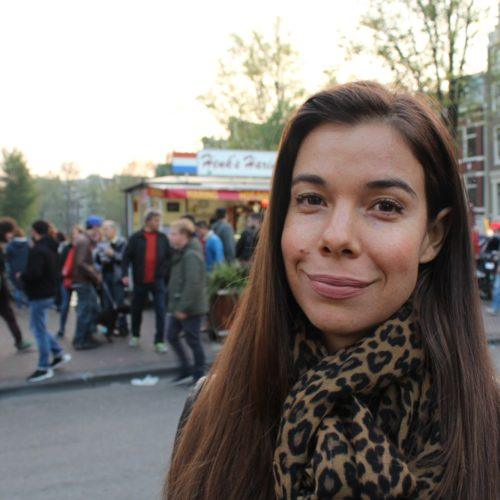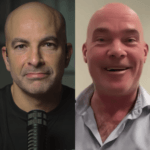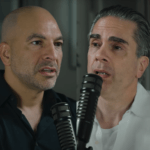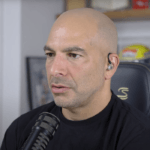Rhonda Patrick, Ph.D. and I go on a Nerd Safari into the jungle of health, nutrition, fitness, performance, and longevity. We visit IGF-1 and whether there’s a tradeoff between having high or low levels. We discuss the PPARs (receptor proteins) and genetic polymorphisms. Does Rhonda think there’s any benefit in a NAD+ booster for health and longevity? Can saunas lower the risk of heart disease, dementia, and all-cause mortality? We dig into those questions…and a lot more.
Subscribe on: APPLE PODCASTS | RSS | GOOGLE | OVERCAST | STITCHER
Rhonda is a wealth of knowledge and was the perfect companion to explore several interesting topics in this episode. She puts a great deal of thought and effort into her research, and it really shows in this conversation.
We discuss:
- What Rhonda believes differently today than she did a few years ago;
- The paradox of GH/IGF-1 in performance and longevity;
- The role of PPAR in fat metabolism and ketogenic diets;
- The possible genetic explanations for why some patients don’t respond well to a ketogenic diet;
- The health benefits of heat and cold exposure;
- NAD+; and
- More.

Rhonda Patrick, Ph.D.
Rhonda Perciavalle Patrick has a Ph.D. in biomedical science from the University of Tennessee Health Science Center, Memphis TN and St. Jude Children’s Research Hospital, Memphis TN. She also has a Bachelor’s of Science degree in biochemistry/chemistry from the University of California, San Diego. She has done extensive research on aging, cancer, and nutrition. She did her graduate research at St. Jude Children’s Research Hospital where she investigated the link between mitochondrial metabolism, apoptosis, and cancer. Her groundbreaking work discovered that a protein that is critical for cell survival has two distinct mitochondrial localizations with disparate functions, linking its anti-apoptotic role to a previously unrecognized role in mitochondrial respiration and maintenance of mitochondrial structure. Her dissertation findings were published in the 2012 issue of Nature Cell Biology.
Dr. Patrick trained as a postdoctoral fellow at Children’s Hospital Oakland Research Institute with Dr. Bruce Ames. She investigated the effects of micronutrient (vitamins and minerals) inadequacies on metabolism, inflammation, DNA damage, and aging and whether supplementation can reverse the damage. In addition, she also investigated the role of vitamin D in brain function, behavior, and other physiological functions. In February of 2014 she published a paper in FASEB on how vitamin D regulates serotonin synthesis and how this relates to autism.
Dr. Patrick has also done research on aging at the Salk Institute for Biological Sciences. At the Salk she investigated what role insulin signaling played in protein misfolding, which is commonly found in neurodegenerative diseases.
She frequently engages the public on topics including the role micronutrient deficiencies play in diseases of aging, the role of genetics in determining the effects of nutrients on a person’s health status, benefits of exposing the body to hormetic stressors, such as through exercise, fasting, sauna use or heat stress, or various forms of cold exposure, and the importance of mindfulness, stress reduction, and sleep. It is Dr. Patrick’s goal to challenge the status quo and encourage the wider public to think about health and longevity using a proactive, preventative approach. [ FoundMyFitness.com]
Rhonda on Facebook: FoundMyFitness
Rhonda on Instagram: @foundmyfitness
Rhonda on Twitter: @foundmyfitness
Rhonda’s website: FoundMyFitness.com
Rhonda’s podcast: FoundMyFitness






Excellent show here! Thank you both for this fascinating conversation. I look forward to more shows with Dr. Rhonda Patrick.
This was an amazing podcast – incredibly wide ranging series of topics. I first discovered you back in 2011 and I’d say a ferocious amount of what I know scientifically/medically come from things I’ve learned over the years in various incarnations (and investing the needed time to understand appropriately). Look forward to more great info and insight!
Great podcast, will definitely be adding to the list of staples. I’ve been a long time follower of both of you and have put many of your suggestions pertaining to longevity into action. Unfortunately, I just got diagnosed with T1D a week ago at the age of 21. After having doctors, nutritionists, and “diabetes educators” tell me while I was in the hospital that my diet shouldn’t be changed and I should just cover the carbs with insulin. I was quick to double check the ol’ google scholar to make sure I wasn’t crazy, because this didn’t sound like the most current advice. I’ve already constructed a much better diet for myself, but I am concerned about longevity as it pertains to T1D. I know you can’t give direct medical advice here, but I was wondering if you could lay out conceptually how the customary advice of “keep a low average level of glucose and a low variance of glucose and a low insulin curve integral” changes for a T1D? Or just more generally, how can people with T1D get that decade that most lose on average? I know you’re a busy man but I’d really appreciate it if you could touch on this in a post or a comment at some point. Thanks so much for all you do.
Read Richard K. Bernstein, The Diabetes Solution.
Learnt a lot from the part on high-fat/keto diets and genetics. My first year of keto went very badly (high LDL, high TG/HDL ratio, small LDL particle size). After moderating dairy it got better. Rhonda’s genetic report will show you the relevant SNPs. (rs9939609 and rs17817449).
I detect a clear lack of confidence in Aubrey and his cronies : )))) Perhaps Peter could attend the longevity conference next week on the 12th in NYC. Maybe even ask a couple questions : / https://www.leafscience.org/ending-age-related-diseases-advances-in-aging-research-and-investment-prospects/
Excellent podcast! It looks like there are substantial benefits to be gained from prolonged fasting but I am concerned about immune memory. Valter Longo has shown that the immune system is pared down and then rebuilt after a 3-day fast. Are old memory T cells that have been primed for action by immunization or disease lost in the paring process? I would like to have a rebuilt immune system but don’t want to lose a lifetime of acquired immunity.
Hold on, would you be able to regenerate the entire immune system to the extent of “curing” common autoimmune diseases, like gluten intolerance, by prolonged fasting?
Hi Peter, thank you for all the wonderful information you provide. I’m seeking further information (not medical advice!) about two topics you touched on with Rhonda Patrick, on both your podcast and hers. First is rapamycin — we have experts on both sides arguing for and against taking it. What evidence would you want to see in trials before you would consider it a possible viable treatment for people 60+? Are we getting close or still miles away? Second, regarding mTORC1 you mentioned on Rhonda’s blog that people with muscular dystrophy ‘want to figure out how to alter that pathway.’ As a friend of mine was recently diagnosed with MD, is there a link or resource you would recommend for information on this that she could show her doctors? Many thanks in advance.
Valter Longo’s interview on the HIH podcast mentions (30m12s mark), how fasting above 12 hours and/or skipping breakfast, is associated with gallstones, and overall mortality! Any thoughts on this?
Regarding the 54m mark, what might the diet of a cancer patient look like in the future… 24-48 hours of fasting prior to chemotherapy, then normal eating immediately after the procedure?
Regarding how a larger/faster drop in body temperature just before going to bed may lead to better sleep [1h3m], I must be like those piglets.. I dream a lot more when the electric blankets are set to hot!
If taking an anti-inflammatory an hour after workout is counter-productive, would a cold shower after the sauna be potentially un-doing some of benefits of the heat exposure (HSPs, etc)?
I’ve heard how infrared exposure is able to heal injuries quicker, and according to Dave Asprey infrared saunas may help with mitochondrial function. It was mentioned Peter will ask Navdeep Chandel about whether or not metformin impairs NAD/NADH, can you post his response?
I like the idea that just twenty-four 45-min sessions can un-do 10 years of declining vvo2max in the brain [1h3m].. I wonder how often the reset would have to be performed!
This is one hella show notes!
Thanks for this awesome podcast !
Can we imagine a synergic effect of fast + sauna since hypoglycemia stimulates GH too (with the limit of catecholamines secretion due to heat stress ?) ? And then breaking fast after the sauna session with good proteins ?
Second point, GH stimulates T cells proliferation, NK action, macrophages. I see there a limit of the long term low GH/IGF1 goal as you mentioned inntuis episode.
Thanks
A quick glance at the sauna studies, they don’t have any control group, so hard to know if sauna users are generally healthier causally because of the sauna or that they are healthier to begin with as they can tolerate the heat.